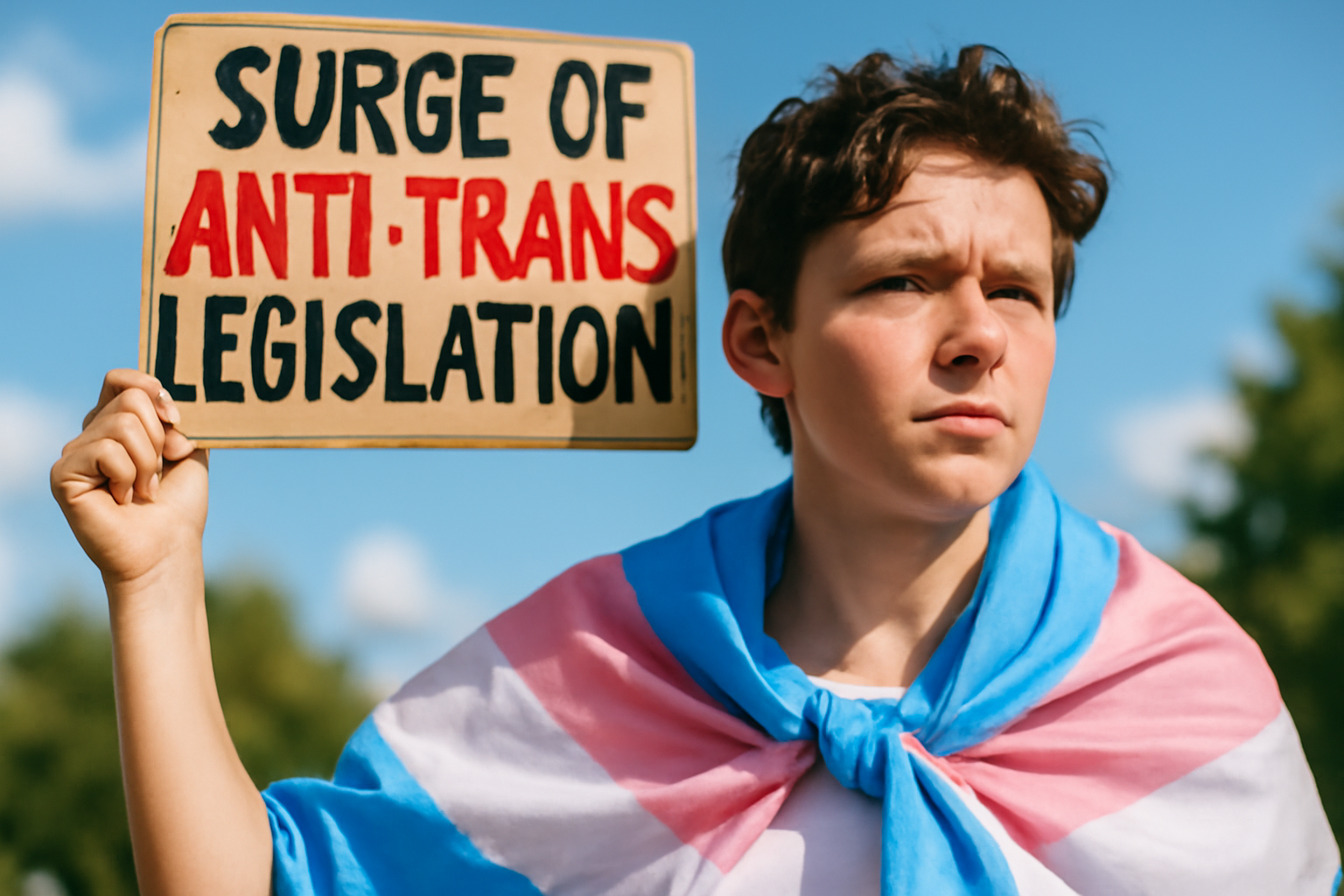
The landscape of transgender rights in the United States is facing unprecedented challenges as lawmakers push a wave of anti-trans bills. As noted by independent journalist Erin Reed, a record number of these bills have been introduced by Republican legislators before the dawn of 2025. This surge in legislative activity marks a significant increase in attempts to restrict the rights and recognition of transgender individuals, with nearly 120 bills proposed in just the past few months. In comparison, the same timeframe last year saw the introduction of approximately 80 such bills.
Reed, who collaborates with volunteers to track LGBTQ+ legislation nationwide, highlights that the majority of these bills originate from Texas and Missouri. However, the trend is not confined to these states alone. Other states, including Alabama, Arizona, Georgia, Indiana, Montana, Nevada, New Hampshire, Ohio, South Carolina, Washington, and Wyoming, have also filed similar bills.
Impact and Implications of Anti-Trans Legislation
The proposed bills vary in scope and severity, but all share a common theme of undermining the rights of transgender individuals. Some aim to revoke the legal recognition of transgender people, effectively forcing a detransition by barring them from updating gender markers on official documents like driver's licenses. In extreme cases, states such as Kansas have considered reverting gender marker changes that were made years ago, stripping away hard-won rights.
Bathroom bans have also emerged as a significant concern. These bills propose allowing legal action against transgender individuals who use restrooms that align with their gender identity. Such measures are viewed by many as blatant acts of discrimination and have sparked outrage among civil rights advocates.
In addition to bathroom bans, the wave of legislation includes book bans and sports bans. Many of these bills expand upon existing restrictions, further marginalizing transgender youth by restricting their participation in school sports or access to educational materials that affirm their identities.
Additional types of anti-trans legislation highlighted by Reed include bans on drag performances, mandates for forcibly outing transgender students, and "don't say gay" bills that seek to silence discussions of LGBTQ+ topics in educational settings. Restrictions on changing birth certificate and driver's license gender markers are also prevalent.
The Broader Context of Anti-Trans Rhetoric
This legislative push is symptomatic of a broader pattern of anti-trans rhetoric gaining momentum across the country. A recent study underscores the detrimental impact of such laws, revealing a direct correlation between these legislative actions and increased suicide attempts among transgender youth. As Republican lawmakers intensify their efforts to curtail transgender rights, the mental health and well-being of affected individuals are at risk.
President-elect Donald Trump has openly stated his intention to target transgender rights upon taking office, further exacerbating concerns about the future of LGBTQ+ protections in the United States. The potential rollback of rights poses a grave threat to the safety and dignity of millions of transgender Americans.
Resources and Support for the Transgender Community
In light of these challenges, support and resources for those affected by anti-trans legislation are more critical than ever. If you or someone you know is struggling or in crisis, help is available through various support networks. The National Suicide Prevention Lifeline can be reached by calling or texting 988, or through online chat at 988lifeline.org. The Trans Lifeline, accessible at 1-877-565-8860, is manned by transgender individuals and guarantees confidentiality without involving law enforcement. Additionally, The Trevor Project offers a safe space for LGBTQ+ youth via chat, text (678-678), or phone (1-866-488-7386), with services available in both English and Spanish.
Staying informed and engaged is crucial for those who wish to support the LGBTQ+ community during these challenging times. Subscribing to updates from LGBTQ advocacy organizations can help you stay connected to the issues and events that impact our community both at home and beyond. Together, we can work towards a future that respects and upholds the rights of all individuals, regardless of their gender identity.
Related Posts
Pete Buttigieg's Next Steps: Life After Cabinet
Welcome back, readers! This week's news roundup celebrates moments that spark joy and ignite progress within our vibrant LGBTQ+ community. From incredible personal achievements and political victories, each story highlights how far we've come and shares in our collective happiness. Ready? Let's explore! Celebrating love and progress This week, love and progress are in full bloom. Wedding bells a [...]
Exciting New Images Released for '100 Nights of Hero': A Captivating Historical Fantasy
Unpacking '100 Nights Of Hero': A First Look If you're a fan who loves getting lost in historical fantasy, get ready because new images from *100 Nights Of Hero* have just dropped. This much-anticipated film stars Nicholas Galitzine, Emma Corrine, and Charli XCX, and brings Isabel Greenberg's beloved graphic novel storybook magic onto screens. Under Julia Jackman‘s masterful direction, *100 Ni [...]
Mary Trump Critiques Her Uncle's Use of Religion for Political Gain
Mary Trump, a clinical psychologist and openly lesbian, has been quite vocal about her criticisms regarding her uncle, former President Donald Trump. Recently, she took issue with how he uses religion as a means, in her view, simply as a tool, especially evident when discussing his decision on a military strike against Iran. In her blog, she expressed concerns that invoking God was less about fait [...]